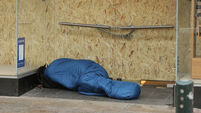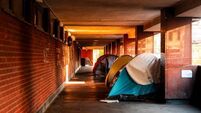Fear of homophobia and transphobia keeping homeless LGBTQI+ youth away from hostels

According to the report, there was a high degree of fear and anxiety among young people when engaging with homeless services.
Parental rejection of young people’s sexual orientation and gender identity can be a trigger in the decision to leave home and can subsequently lead to homelessness, according to a new report.
Research conducted by Focus Ireland and BeLonG To Youth Services also found connections between homelessness and mental health problems, and complex experiences of stigma and shame.













